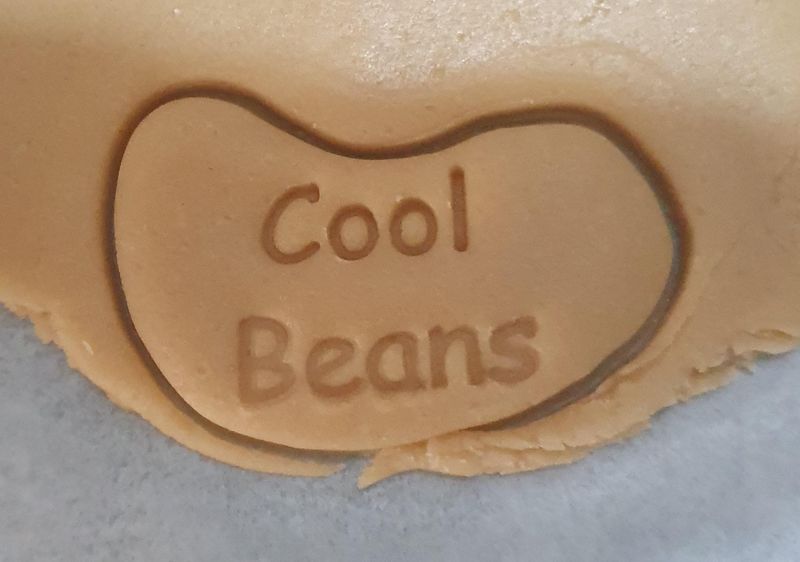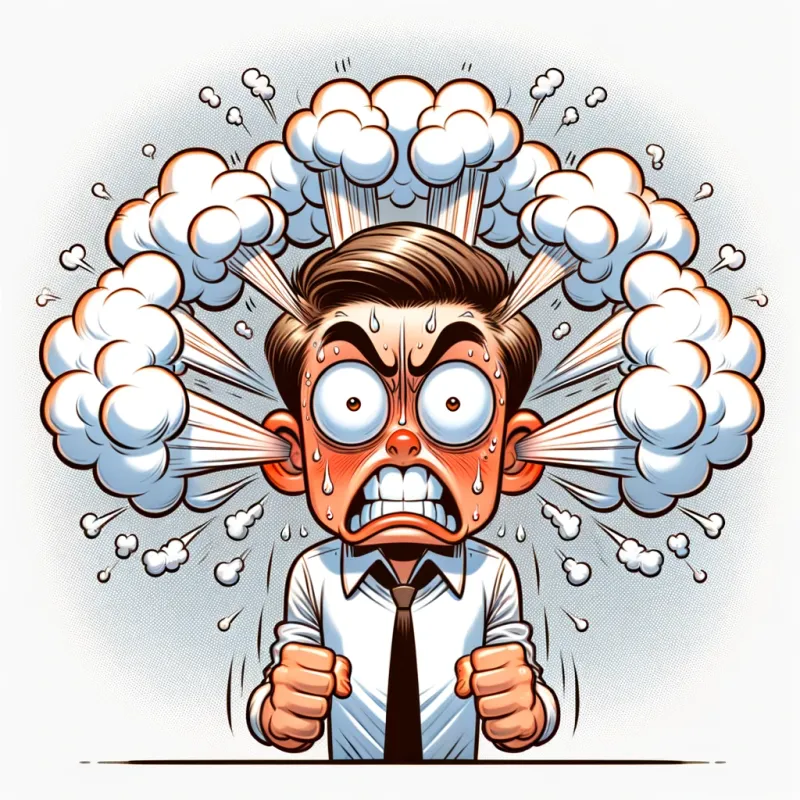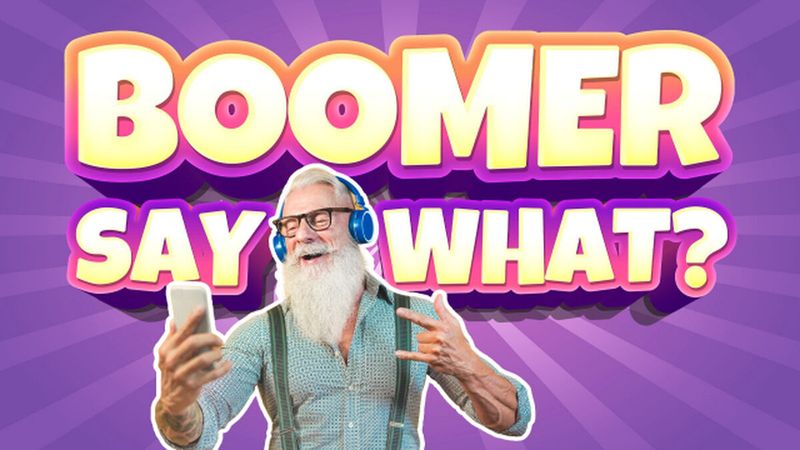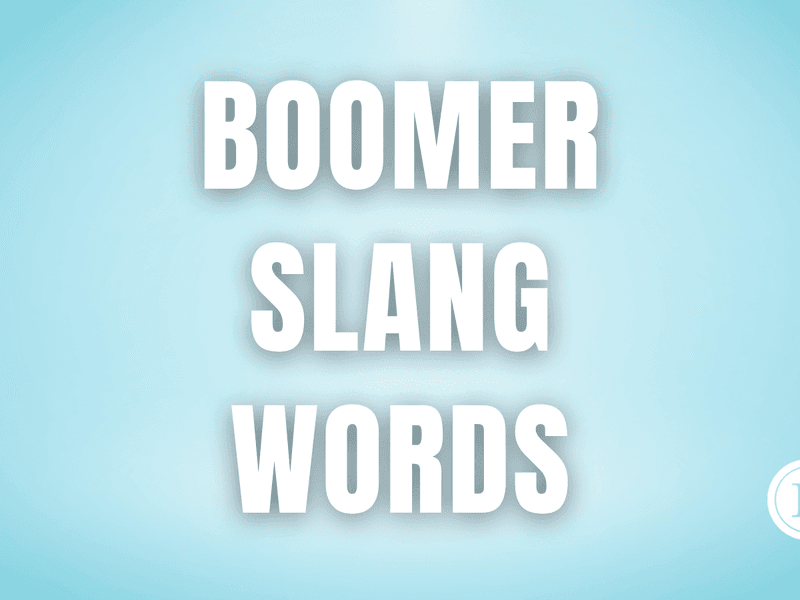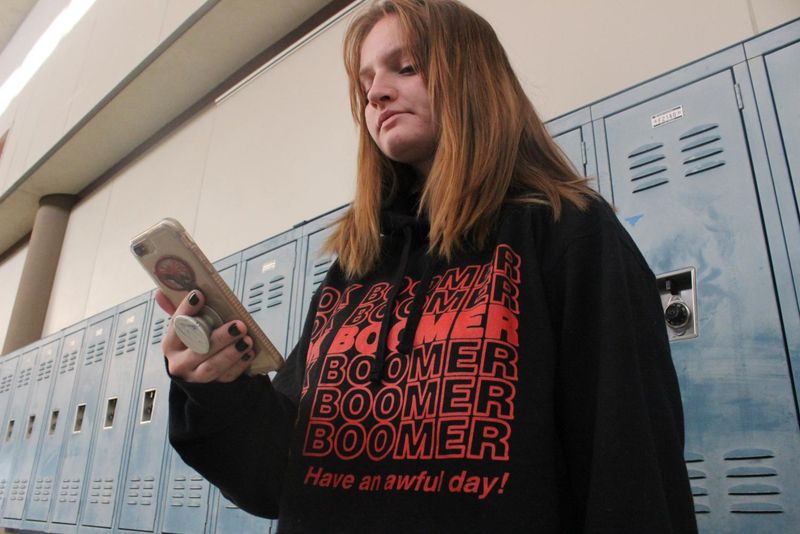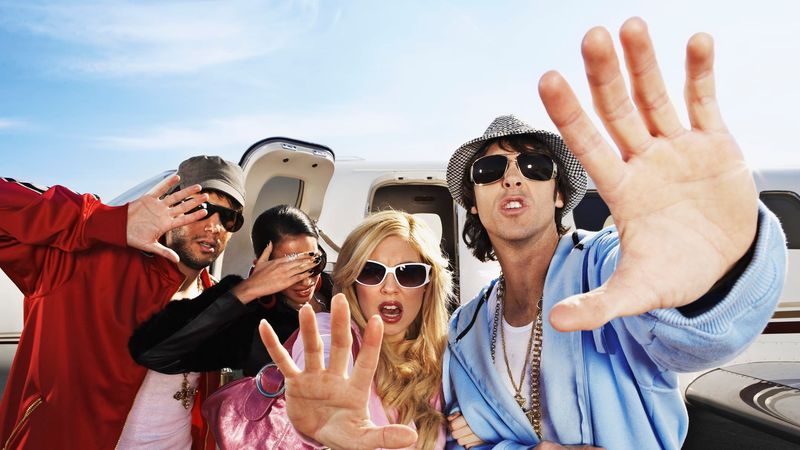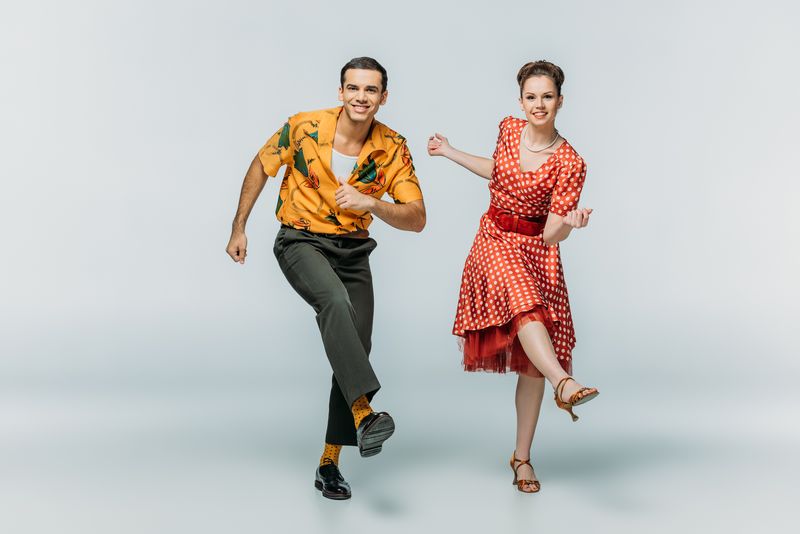Whether we’re Boomers or not, we can all agree that certain slang terms have outstayed their welcome. The language we use evolves over time, but some phrases seem to be stuck in the past, leaving younger generations cringing.
In this blog post, we’ll explore 15 of the most outdated and cringe-worthy Boomer slang phrases that we wish would just fade away.
From words that once sounded cool to those that never really caught on, let’s dive into these linguistic relics and why it’s time to retire them.
1. Cool beans
“Cool beans” is one of those phrases that seemed quirky and fun in its heyday, but now feels as outdated as bell-bottom pants. Originally used to express excitement or approval, it no longer resonates with younger crowds.
Imagine telling your friends about a new movie and getting a response of “cool beans” – the disconnect is palpable. Today, phrases like “awesome” or “cool” suffice without the added retro flair.
It’s time to say goodbye to this corny expression and embrace more contemporary language that aligns with today’s conversational vibes.
2. Far out
“Far out” was once the epitome of expressing astonishment or surprise, especially during the psychedelic ’60s. However, in today’s context, it sounds more like a relic than a genuine expression of surprise.
When younger generations hear it, they might picture a tie-dye-clad hippie rather than someone truly impressed. To convey genuine enthusiasm, phrases such as “amazing” or “incredible” have replaced it.
While “far out” may hold nostalgia for some, it’s best left in the era of peace signs and flower power, allowing modern expressions to take center stage.
3. Groovy
“Groovy” was once synonymous with being fashionable or excellent, particularly during the disco era. Nowadays, its usage feels more like a caricature of the past than a legitimate compliment.
Picture someone calling a new gadget “groovy”—it feels like an awkward time warp. In modern times, words like “stylish” or “cool” are more fitting without the kitschy throwback.
While “groovy” was all the rage in its time, it’s time to retire it to the nostalgia vault and embrace language that doesn’t feel like a blast from the past.
4. Right on
“Right on” was a way to express strong agreement or affirmation, but today it feels a bit too reminiscent of the counterculture movement. What was once a punchy affirmation now sounds out of place in everyday conversations.
Younger generations might find it reminiscent of old movies or TV shows rather than an effective way to say “I agree.”
In contrast, simply saying “exactly” or “absolutely” can convey the same sentiment without the retro baggage. It’s time for “right on” to step aside as more current expressions take the stage.
5. Outta sight
“Outta sight” was once a compliment reserved for something truly impressive or desirable, but today it feels more like a phrase from a forgotten era.
While it was once used to convey a sense of awe, modern expressions like “fantastic” or “awesome” have taken its place. When younger individuals hear “outta sight,” it might conjure images of groovy parties and platforms rather than genuine admiration.
As language continually evolves, it’s time to retire this phrase and let expressions that resonate with the current times shine.
6. The bee’s knees
Calling something “the bee’s knees” was once the highest compliment, highlighting its excellence or desirability. However, today it feels quaint and somewhat silly.
In an era where compliments are straightforward, “amazing” or “fantastic” are more fitting descriptors. The phrase might evoke images of speakeasies or flapper dresses rather than modern admiration.
While it holds a charming vintage allure, it’s time to retire “the bee’s knees” and allow language to evolve to match the straightforwardness of contemporary conversations.
7. Catch you on the flip side
“Catch you on the flip side” was a popular way to say goodbye, especially during the days of vinyl records and radio shows. Today, however, it feels a bit too niche and outdated for everyday farewells.
Younger generations might not even understand its origin, making it sound more like a cryptic message than a friendly goodbye.
In modern terms, simply saying “see you later” or “bye” is more practical and universally understood. As we move away from the era of vinyl, it’s time to leave this phrase behind as well.
8. Don’t have a cow
“Don’t have a cow” was often used to tell someone not to overreact or get overly upset, but in today’s context, it feels more like a comedic line than sincere advice.
While it once served a purpose, these days “calm down” or “take it easy” are more straightforward and relatable ways to convey the same message.
Younger individuals might find “don’t have a cow” amusing, but its effectiveness as advice has waned over time. It’s a phrase best enjoyed in humorous settings rather than serious conversations.
9. Yuppie
The term “yuppie” originated in the 1980s to describe young urban professionals, often with a materialistic focus. But today, it feels outdated and less relevant to the societal dynamics of young professionals.
Modern terms like “millennial” or “Gen-Z” are more descriptive of current generations. “Yuppie” might evoke images of oversized cellular phones and power suits rather than today’s tech-savvy and socially conscious youth.
While it captures a specific era, it’s time to recognize its limitations in today’s diverse professional landscape.
10. Gag me with a spoon
This phrase was once popular for expressing disgust or disdain, particularly in the Valley Girl era of the 1980s. However, nowadays, it seems more like a parody than a genuine reaction.
It’s a phrase that might get a laugh, but it doesn’t convey the intended sentiment in today’s conversations. Modern expressions of disapproval are simpler and more direct.
While it may bring back memories of neon colors and pop music, “gag me with a spoon” is best left as a nostalgic reference rather than active use in language.
11. What a drag
“What a drag” was once a common phrase to express boredom or frustration, but today it feels more melodramatic than relatable. Modern expressions like “that’s so dull” or “how boring” are more straightforward and resonate with current conversational styles.
The phrase might evoke images of long, tedious events rather than genuine annoyance. While it served its purpose in its time, “what a drag” doesn’t fit seamlessly into today’s fast-paced communication.
It’s time to embrace language that better captures the essence of modern-day inconveniences.
12. Bummer
The term “bummer” was often used to express disappointment or regret, but today it feels somewhat trivial. Modern expressions such as “that’s unfortunate” or “how disappointing” carry more weight and clarity.
Younger generations might use “bummer” in an ironic sense, but it lacks the depth needed for serious conversations. Picture a missed opportunity being brushed off with “bummer”—it seems almost dismissive.
As language evolves, it’s important to adopt expressions that can adequately convey the emotions of the moment.
13. Talk to the hand
“Talk to the hand” became popular in the ’90s as a dismissive retort, but today it feels more like a cheesy comeback than a serious rebuttal. Modern discourse favors more direct and respectful communication.
Using phrases like “I’m not interested” or “please stop” are clearer and less theatrical. While it might recall the sass and flair of its time, it lacks the maturity expected in today’s interactions.
As conversational dynamics evolve, “talk to the hand” is better remembered as a catchphrase rather than a functional response.
14. Funky
“Funky” was once a compliment for something unconventional or stylish, particularly in the context of music and fashion. However, today it can be confusing or ambiguous.
Younger generations might associate “funky” with a strong odor rather than a trendy style. In modern language, terms like “unique” or “quirky” are more precise and less likely to be misinterpreted.
While “funky” played a significant role in its cultural heyday, it’s time to allow language to move forward with clarity and precision, reflecting today’s diverse tastes.

